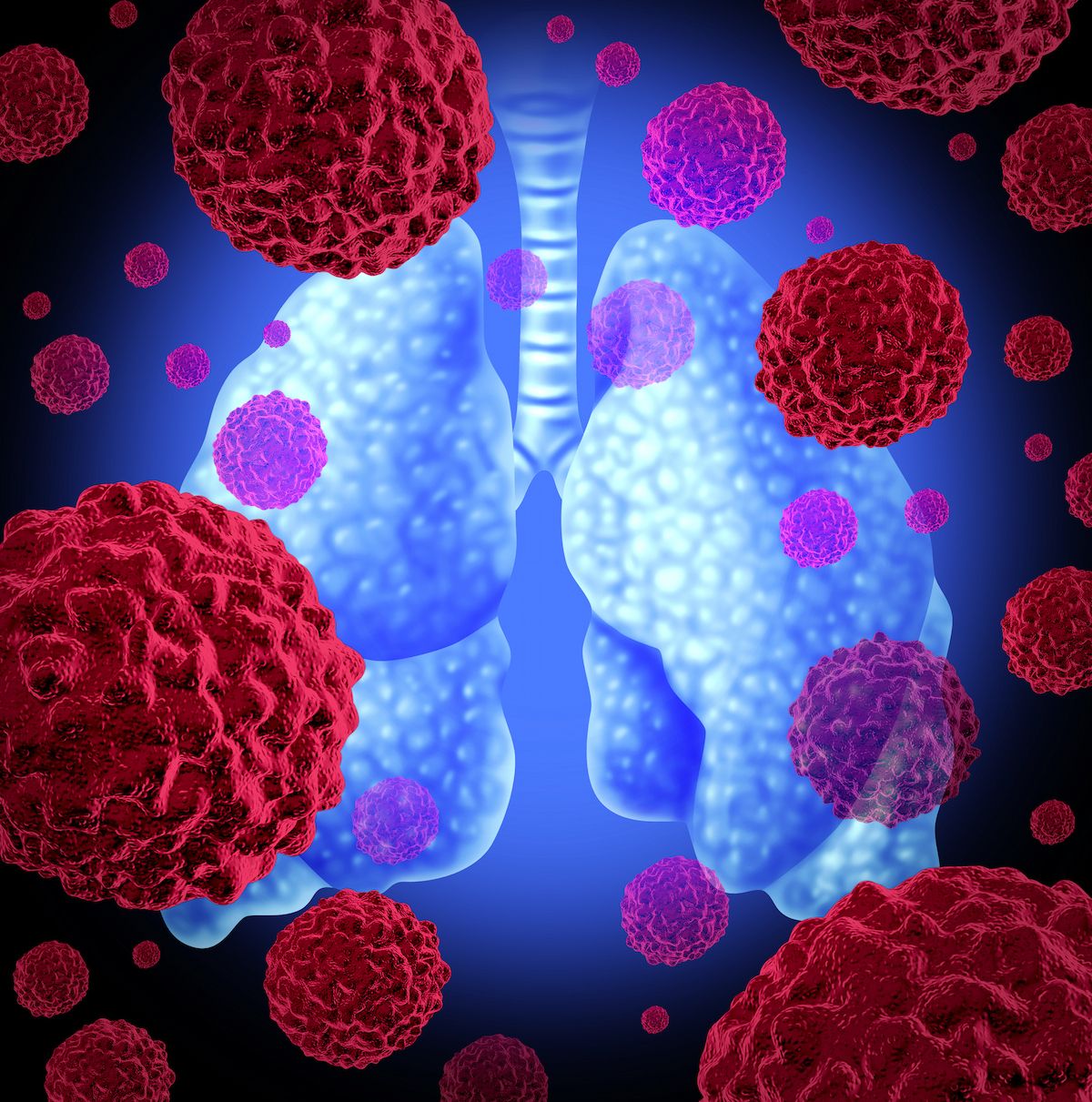CID-078 Earns FDA Orphan Drug Designation in Small Cell Lung Cancer
Developers have initiated a phase 1 clinical trial evaluating the safety, tolerability, and early antitumor activity of CID-078 in advanced solid tumors.
Cyclin A/B RxL inhibitors have shown potent and selective disruption in protein-to-protein interaction between cyclins A and B as well as key substrates and modulators in biochemical and cellular studies.

The FDA has granted CID-078, a cyclin A/B RxL inhibitor, orphan drug designation as a treatment for patients with advanced small cell lung cancer (SCLC), according to a news release from the drug’s developer, Circle Pharma.1
Furthermore, the developers have announced the initiation of a phase 1 clinical trial (NCT06577987) evaluating the safety, tolerability, pharmacokinetics, and antitumor activity of CID-078 in advanced solid tumors, including SCLC. The study will assess the cyclin A/B RxL inhibitor as a monotherapy twice daily in repeating 21-day cycles until disease progression or fulfillment of discontinuation criteria.2
“The orphan drug designation from the FDA underscores both the seriousness of [SCLC] and the lack of effective treatment options,” Michael C. Cox, PharmD, MHSc, BCOP, senior vice president and head of early development at Circle Pharma, said in the news release.1 “We are committed to accelerating the clinical development of CID-078 to offer new hope for patients who [have] limited therapeutic choices.”
CID-078 is being developed as an orally bioavailable macrocycle with dual cyclin A/B inhibitory activity. The agent selectively targets oncogenically altered tumor cells responsible for cell cycle dysregulation and has shown tumor regression in multiple in vivo models in preclinical studies. Cyclin A/B RxL inhibitors have shown potent and selective disruption in protein-to-protein interaction between cyclins A and B as well as key substrates and modulators in biochemical and cellular studies.
The phase 1 trial will first include a part 1a dose-escalation phase, followed by a part 1b new formulation/pilot food effect phase. Furthermore, a part 2 dose-expansion phase will be conducted. The study includes a 28-day screening period prior to treatment as well as an end-of-treatment visit occurring within 7 days of last study dose or study withdrawal.
Patients in part 1a of the trial will undergo treatment with the monotherapy, with dose escalation occurring sequentially over multiple dose levels, with part 1b of the study evaluating a new CID-078 oral formulation. The part 2 dose-escalation phase will evaluate CID-078 in 3 tumor-specific cohorts, including triple-negative breast cancer (TNBC), SCLC, and solid tumors harboring RB1 alterations or Rb protein loss of function (LoF).
The primary end points of the first part of the trial include the incidence of treatment-emergent adverse effects (AEs), treatment-related AEs, dose-limiting toxicities, and recommended doses for expansion in part 2 of the study. Primary end points in the second part of the phase 1 study include confirmed objective response rate per RECIST criteria, duration of confirmed response, progression-free survival, and recommended phase 2 dose. Secondary end points include maximum plasma concentration, time to maximum plasma concentration, area under the concentration-time curve, and terminal half-life of CID-078.
Patients in the phase 1a/1b trial must have a locally advanced or metastatic solid tumor malignancy that has progressed or did not respond to available therapies, measurable disease per RECIST v1.1 criteria, an ECOG performance status score of 0 or 1, and a life expectancy of greater than 12 weeks to be eligible for enrollment. Additionally, those eligible for enrollment are 18 years or older, have a calculated creatinine clearance of 60 mL/min/1.73 m2 or greater, have a total bilirubin of 1.5 times the upper limit of normal or less, and have platelets numbering at least 100 x 109 cells/L, with the last platelet transfusion occurring more than 14 days prior to first study dose.
Eligibility criteria for the part 2 portion of the trial include histologically or cytologically confirmed TNBC, relapsed/refractory SCLC, or RB1-altered solid tumors or Rb protein LoF; age of at least 12 years; weight of at least 40 kg; a Karnofsky performance status of 70% or greater for those aged 16 or 17 years; and a Lansky performance status of 70% or greater for those aged 12 to 15 years.
References
- Circle Pharma receives FDA orphan drug designation for CID-078 for the treatment of small cell lung cancer. News release. Circle Pharma. June 16, 2025. Accessed June 17, 2025. https://tinyurl.com/y9arxsda
- Safety/efficacy study of CID-078 in patients with advanced solid tumor malignancies. ClinicalTrials.gov. Updated May 23, 2025. Accessed June 17, 2025. https://tinyurl.com/y3ykf5w3